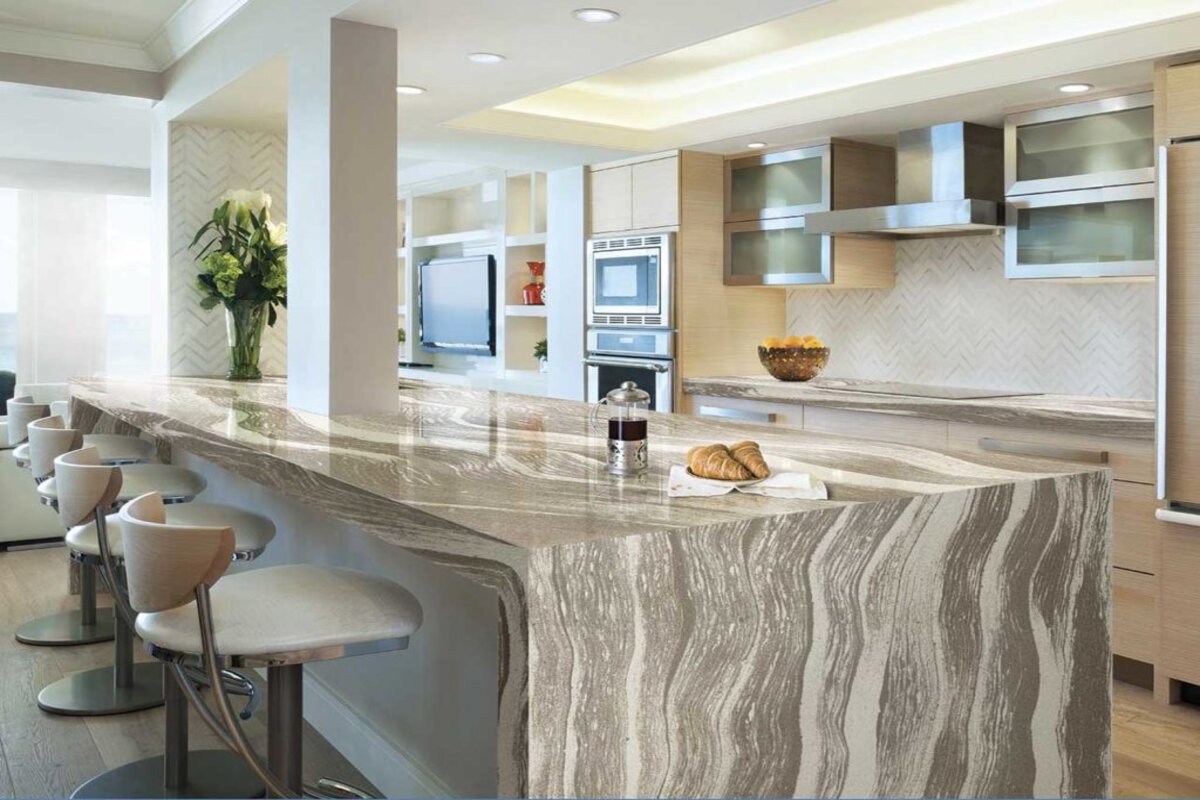Quartz countertops not only look good, but they are one of the most durable surfaces available. However, if you want your countertop to keep its original luster and shine, you’ll need to know how to clean the surface properly.
Many designers and contractors who install countertops prefer quartz because of its versatility. Quartz is a type of engineered stone boasting a fairly uniform design.
What is the Best Way to Clean Countertops Made from Quartz?
Quartz, as well as other countertops featuring engineered stone, are among some of the easiest to clean. However, you don’t want the stone to end up disintegrating or getting scratched or stained.
Non-abrasive glass cleaners, dish soap, and warm water are the best substances for cleaning these countertops. Non-abrasive sponges and microfiber cloths will be the best objects to apply the cleaners with.
Warm water, dish soap, and a microfiber cloth will usually work best for quick touchups. The cleaning solution should be applied in a circular motion, making sure all the residue is rinsed off.
A non-abrasive sponge and surface cleaner are best suited to more stubborn stains. If you lack a non-abrasive cleaner, you can mix one from warm water and rubbing alcohol.
How Do You Keep Quartz Countertops Looking Shiny and Clean?
Although quartz countertops are stain-resistant, you should wipe up spills promptly. For example, acidic materials can cause discoloration if not cleaned up.
Because quartz is a durable material, you don’t need to have it resealed. Wiping down the countertop with a disinfectant like Zoflora is one of the best ways to provide some extra shine.
If your kitchen has skylights or other natural lighting, quartz-specific cleaners like Weiman’s are the best. One of the best things about this cleaner is built-in UV protection to help prevent fading.
Are Clorox and Windex Safe to Use on a Quartz Countertop?
Clorox wipes are often bleach-free but should not be the first line of defense for cleaning a countertop. These wipes contain citric acid, which can cause discoloration if used long-term.
Windex has a higher PH level, which can damage quartz. Opting for mild, non-abrasive options like mild dish soap and water will help provide more protection.
Windex contains ammonia, which can cause harmful fumes if mixed together with bleach. This mixture can irritate the throat, airways, eyes, and mouth, as well as cause life-threatening side effects.
What Else Should You Avoid Cleaning Your Countertops With?
Anything harsh or abrasive should be avoided when cleaning your countertops. Examples of things to avoid include:
- Cleaning products with high PH levels
- Alkaline cleaners
- Scouring pads
- Oven cleaner
- Degreaser
- Bleach
Cleaning your countertop daily instead of focusing on deep cleaning when dirt, grease, or debris build up, is always better for keeping everything looking good. If you have accidental stains that could be more permanent like nail polish, rubbing alcohol, or diluted lemon juice are your best choices for cleanup.
Hot pots and pans should also be kept off the countertops. Hot pads and trivets will help keep your countertop safe when these items are out.
When preparing food, always use cutting boards to avoid scratches and scrapes from knives. You’ll also avoid spilling ingredients that could cause stains.
What to Do If You’re Ready
If you’ve decided to get quartz countertop material, you’ll want to work with a designer well-versed in engineered stone. Karin Ross is a designer who handles all areas of home renovation, including countertops.
When you opt to work with Karin Ross, you’ll be pleased with the options that are available to you. Contact us today for more information on quartz countertops.










